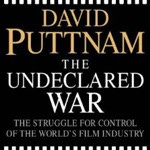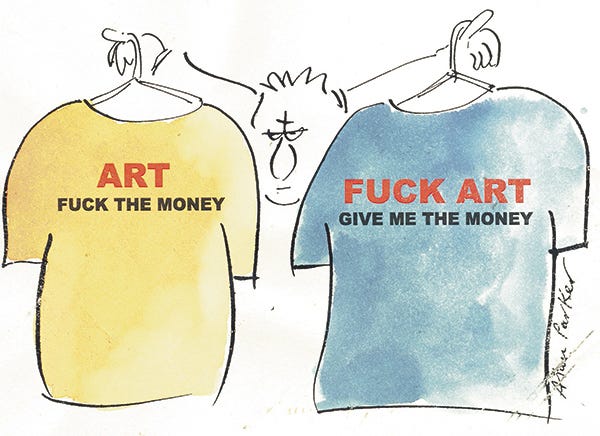Are British films better than Hollywood films?

Towards the end of last year the BFI re-published numbers showing how poorly the average British film performs at the box office. Overall only 7% made a profit, and that figure drops to 3.4% when you look at films costing under £500,000. The figure was certainly headline-grabbing, but it wasn't the whole picture. Firstly, it doesn't follow that the investors of the 93% of "non-profitable" films lost money. Most UK films under £500,000 are operated via SEIS and EIS schemes which can protect as much as 78% of an investor's money, meaning that a film can "under perform" at the box office and yet still allow the investor to recoup. And secondly, the box office is only half the picture. The worth of a film cannot be measured through its finances alone.
So to get a more rounded view, in today's blog I am taking a look at the other side of film - the art. As a producer I have to spend my time in both camps, worrying about pleasing audiences with powerful films and ensuring the investors' interests are promoted within the production. So how can we measure 'art'? It goes without saying that art is an intangible and subjective concept so I should declare up front that I'm not trying to quantify that. But there is something we can measure - the scores given to films by audiences and critics.
I took a look at British films over the past 10 years and found:
The average critic's score for Hollywood films is 5 out of 10
The average critic's score for low budget British films is 6.5 out of 10.
Across all films, British films get higher audience ratings than American ones
Broadly, audiences and critics agree on the 'quality' of a film
British films that critics loved but audiences hated include The Deep Blue Sea (2011), Coriolanus (2011) and The Arbor (2010)
British films that audiences loved but critics hated include Tideland (2005), Revolver (2005) and The Phantom of the Opera (2004)
British films are better reviewed than Hollywood
The Metascore is calculated by Meta Critic and is a weighted average of reviews from top critics and publications. It is a short-hand way for us to see what the critics thought of a particular film en masse.
The average Metascore for all Hollywood films between 2006 and 2010 was 50, whereas for British films made under £500,000 the figure was 65. This is a significant difference and means that Hollywood films received "Mixed or Average Reviews" whereas the UK films garnered "Generally Favourable Reviews".
What do audiences think of British films?
IMDb allows users to rate films out of 10 (apart from 'Spinal Tap', which is scored out of 11) and can serve as our quick way of judging what the global film-watching public thought of British films.
Do audiences and critics agree?
Broadly, yes they do.
When audiences and critics disagree...
Now that I had found the data from both audiences and critics I thought it would be fun to look at the films they disagreed about most. I multiplied the IMDb audience rating by 10 to give us a comparable scale out of 100 and then looked to see which films had the biggest difference between the IMDb and Metascore ratings. The end result is a league table of the films that cause the biggest arguments between your average cinema-goer and film critic.
The British Films that Critics Preferred to Audiences
[table id=4 /]
The British Films that Audiences Preferred to Critics
[table id=5 /]
Why do British films get higher ratings?
Arguably, the quality of a movie is more important to British filmmakers than to American filmmakers. Before you start drafting hate emails, let me at least explain my theory. It comes down to two things - culture and business.
Culturally, the UK is a literary nation. Despite the fact that America has five times the population as the UK, they only publish twice the number of books. Right from the early days of British film there has been a sense that movies should continue to be works of "great literature," civilising the nation.
Conversely, the American film industry grew from the principles of commerce and business. Hollywood was established by immigrants moving West to evade Edison's patents and with the clear dream of making money. This is one of the (many) reasons by Hollywood is a dominant force in the business of film.

The end result is that the British ideal is the moving drama whereas the American ideal is a spectacular blockbuster. (For more on this topic check out David Putnam's fantastic book 'The Undeclared War').
Of course there are examples on both sides which show that this isn't a universal rule; Vertigo Films are extremely market-driven as are Working Title (although Working Title is a subsidiary of Hollywood studio Universal). Across the pond, festivals such as Sundance, South by Southwest and Toronto consistently showcase films which seem to be driven by art over commerce.
My indecision is final
Successive governments in the UK have struggled with this topic: should they be funding ‘art’ (films that are about promoting culture) or ‘business’ (helping filmmakers make films which can return money)?
If you want it to support the ‘business’ side of the industry then you’re just funding films that private investors would otherwise fund. Whereas if you support only ‘art’ then you’ll be making films which won’t necessarily have wide appeal and which are unlikely to return money.
David Cameron’s opinion is more business than art. He said…
Our role, and that of the BFI, should be to support the sector in becoming even more dynamic and entrepreneurial, helping UK producers to make commercially successful pictures that rival the quality and impact of the best international productions. Just as the British Film Commission has played a crucial role in attracting the biggest and best international studios to produce their films here, so we must incentive UK producers to chase new markets both here and overseas.- David Cameron, January 2012
Epilogue
The data for today's post came from my list of British films 2003-13. I'm still playing around with the data, finding new ways to analyse it. For larger films it's quite easy to find data as they're inherently more visible. There is a great deal of low-to-no budget filmmaking currently going on in the UK and this proves a problem when trying to track and measure it. Therefore, there will be a certain amount of bias in any results as the films which make it to be reviewed are either the biggest or best movies available to distributors and cinemas. Appalling, tiny movies will disappear into obscurity and not therefore not be around to bring down the average for research such as today's article.
The ratings systems I used are not perfect. The Metascore applies a secret formula of weighting to give preference to more 'influential' voices. Critics traditionally favour films which are dramatic and powerful over crowd-pleasing popcorn fare, which correlates with the types of films made in the UK (one in five films made in the UK is a drama). The IMDb rating can be manipulated on a small scale by filmmakers asking their friends, family and Facebook friends to vote it up. IMDb works to avoid this type of behaviour but it's fair to assume that some of it sneaks through, which could account for some of the increase in scores with the decrease in budgets (smaller films have a higher chance of manipulation due to the smaller pool of voters).
Below is Alan Parker's take on the choice between art and commerce in the film industry. it comes from his book 'Will Write And Direct For Food', which I highly recommend for anyone with an interest in film.




